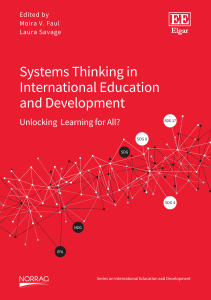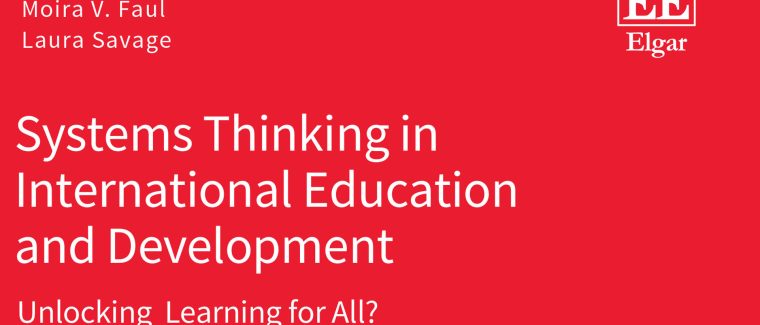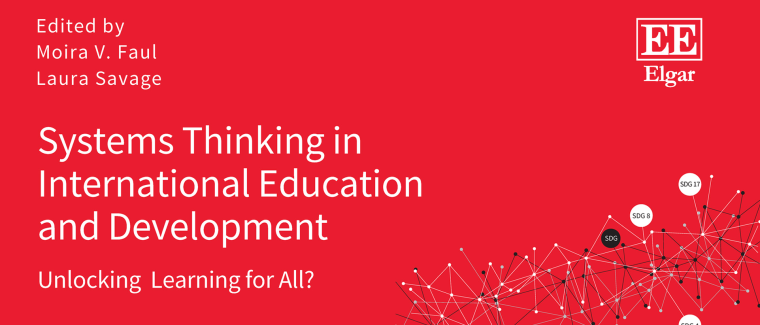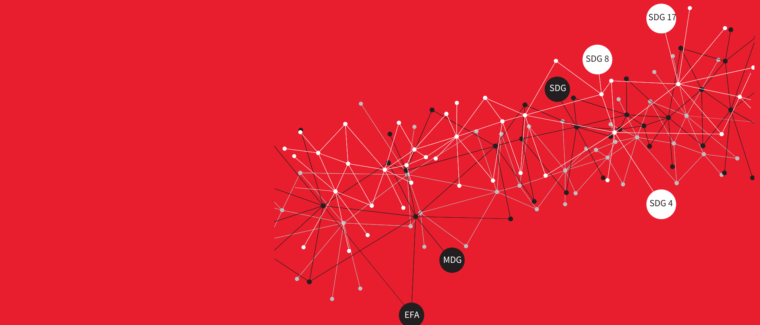Systems Thinking Project
The global education crisis is a complex problem that requires change from teachers, school managers, civil society, implementers, planners, governments and donors. As the 2030 target date for the Sustainable Development Goals (SDG) looms, current expert and “common sense” solutions have not led to improved basic literacy rates, let alone the other education and life outcomes promised in SDG 4. Addressing the issues that lie beneath this crisis requires new ways of working. Systems thinking is a suite of approaches to grappling with complex problems that are beginning to gain traction in international education.
In the simplest terms, a system is a group of interconnected components with shared purpose that together achieve more than the sum of their parts. While it is not possible to predict or change an entire system all at once, it is possible to identify the levers through which to encourage change within a system. Systems approaches support a more holistic consideration of system elements, relationships, structures and functions. Moreover, systems approaches recognise the nonlinear nature of change. Within international education, systems thinking acknowledges the reality of the complex messiness of the education system(s) it is addressing and encourages us to take an approach focused around short feedback loops of action-feedback-change. It refuses to tout a single, one-size-fits-all solution and instead underlines the importance of locally-led, non-standardized, and context-responsive solutions to improve education.
Systems Thinking in International Education and Development
It has been an exhilarating journey since the publication of our book, Systems Thinking in International Education and Development in January 2023. As co-editors we embarked on a quest to explore the power of systems thinking to transform education worldwide. Today, we celebrate the six-month milestone of our book’s publication, and invite educators, policymakers, thinkers, researchers and more to join us in an ongoing global conversation.
In the conclusion of our book, we outlined key implications for practitioners and offered inspiration for researchers. Crucially, systems thinking shows us why technical solutions based on mechanical or engineering metaphors might not work when we are dealing with humans, and human and social systems. Systems approaches also show us how we might act differently in order to improve both processes and outcomes.
However, in the course of editing the book, we discovered a field still in its infancy. While the word ‘”system”’ is now ubiquitous in global education circles, we often find it used without a genuine systems mindset or the consequent systems practice. We fear that in the next five years, if systems discourse continues to be used without any shifts in practice and mental models, then the global education community may prematurely conclude that systems thinking does not work. That would be a tremendous loss.
To address this gap and delve more deeply into the application of systems thinking, we are thrilled to launch a blog series dedicated to this topic. We extend an open invitation to education practitioners, policy makers, thinkers, and researchers from around the world to contribute your insights, experiences, and lessons learned in using systems thinking concepts, frameworks, or tools in their work. We want to hear why you chose to incorporate systems thinking into your practice and what valuable lessons you have gained from the process.
We are proud of the conversations Systems Thinking in International Education and Development has already ignited. We believe there is still much more to be explored within the realm of systems thinking. The launch of this blog series aims to gather a diverse range of voices and experiences to advance our understanding of using systems approaches in education. We invite you to join us on this exciting journey and contribute to the growth of this vital field. Together, we can create a lasting impact on the education landscape and pave the way for a more interconnected and transformative future.






